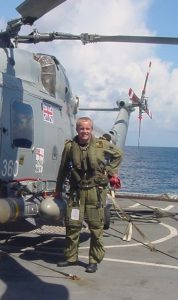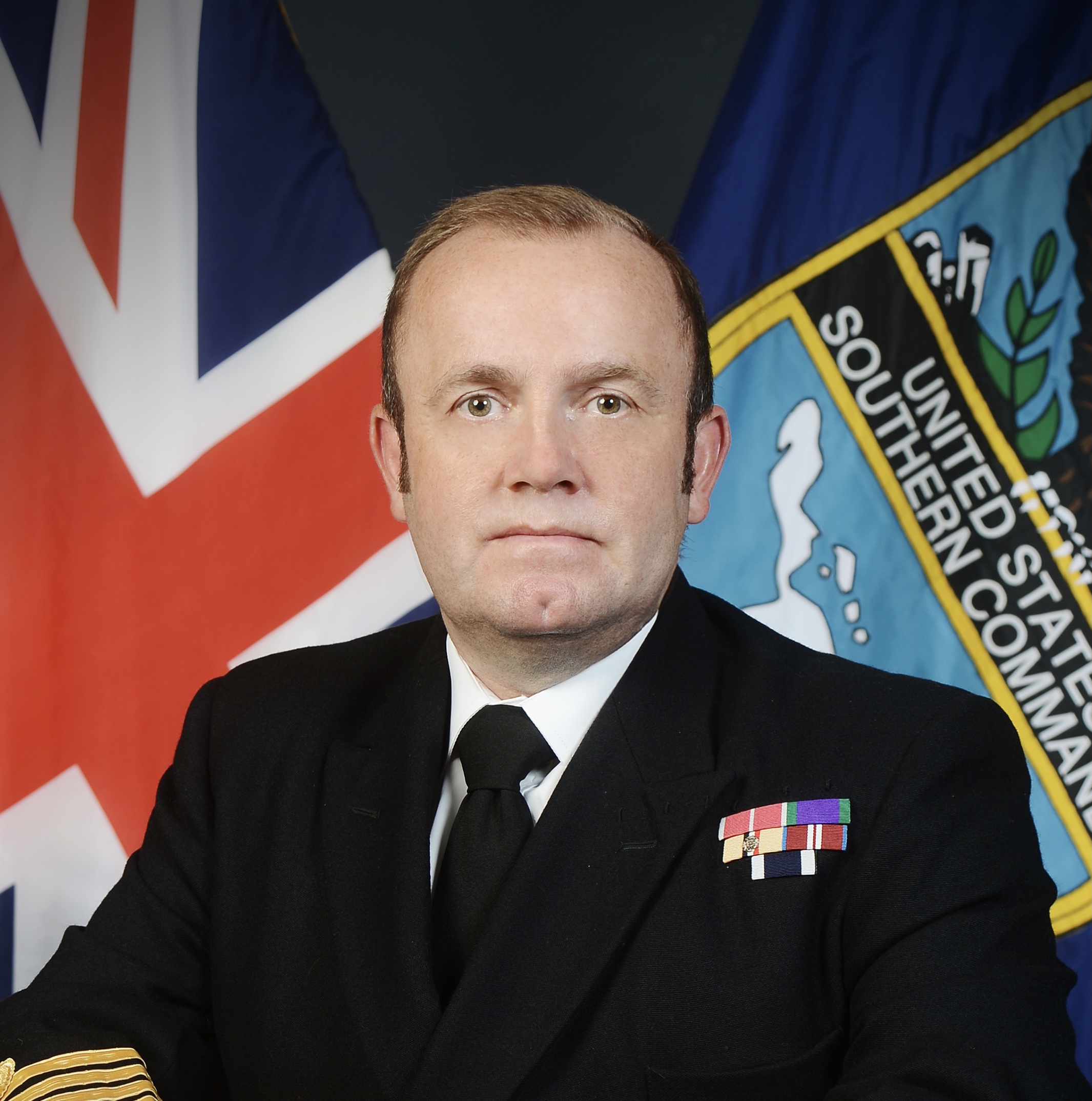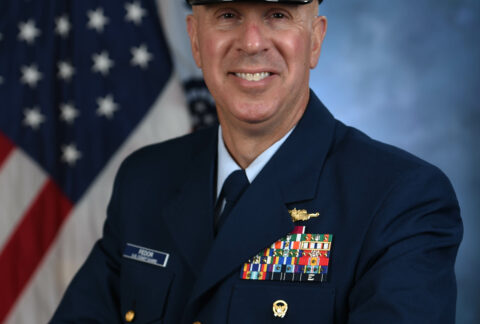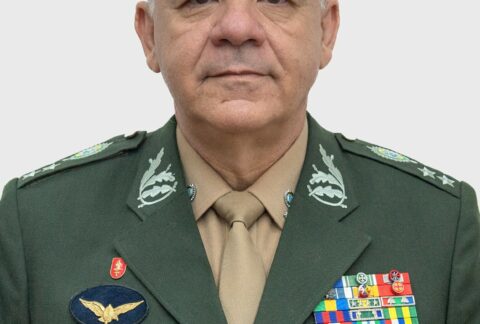Royal Navy Captain Stephen Anderson is one of 11 foreign military advisors embedded at U.S. Southern Command (SOUTHCOM) as part of the Partner Nations Military Advisor (PNMA) program. This program is designed to strengthen partnerships through increasing SOUTHCOM’s understanding of the region by adding perspectives from these advisors.
A native of Glasgow, Scotland, Capt. Anderson joined the Royal Navy in 1998 as an aviator. He arrived at SOUTHCOM in July 2020 for a three-year assignment.
Diálogo: How important is it for the United Kingdom to participate in SOUTHCOM’s PNMA program?
Royal Navy Captain Stephen Anderson, Partner Nations Military Advisor at SOUTHCOM: For the United Kingdom, it’s like any of the exchange or embedded officers that we have worldwide, and it’s of vital strategic importance. That comes back to the fact that, ultimately, the U.S. remains our most important strategic partner and ally. There’s no denying that the United States is ultimately one of our largest bilateral trading partners. By having a partner nation liaison officer here, we’re ensuring that we’re aligned and then continue that alignment where appropriate, and into the Western Hemisphere and into SOUTHCOM’s Area of Responsibility (AOR).
Diálogo: SOUTHCOM has 11 officers currently in the military advisors program. Are there other U.K. officers in this region?

Capt. Anderson: Within SOUTHCOM’s AOR, we have a Navy commander who is at JIATF-South [Joint Interagency Task Force South]. He acts as a U.K. liaison officer and with access that you would expect from that. And then if you extend that from a military perspective, we have a series of defense attachés, military attachés throughout each of the main capitals. In some of those countries, Argentina, for example, we have a defense attaché in Buenos Aires but he also covers Uruguay as a non-resident adviser, and likewise for Colombia, in Bogotá, but covering other countries. We have a series of about six defense attachés. If you extend that to the rest of the Western Hemisphere, we have a United Kingdom liaison officer in NORTHCOM. We also have a Royal Marines colonel there to ensure that we’ve got the right people in the right places to engage and work together where appropriate.
Diálogo: Does the United Kingdom share the same thoughts as the United States on Russia and China being malign actors in this hemisphere?
Capt. Anderson: Yes, I think so. We are geographically outside of the AOR, yet our interests are so aligned. When we look at the U.K. and the U.S. in particular, we have very strong bilateral agreements, but we also have wider multilateral agreements. So we could extend that to the Five Eyes network, which allows us to share information and intelligence to appropriate levels. Then broader than that, you could look at NATO, you could look at a variety of other forums where we work together to ensure that our collective interests are addressed. So as a key ally and Five Eyes partner, that’s one of the real benefits of being set here. But also, we have the importance of history. If you look at the United Kingdom’s history and the Caribbean and Latin America, we go back hundreds of years and some would argue that’s good, bad, or indifferent. We have, from a U.K. perspective, a series of overseas territories and dependencies. The U.K. has a responsibility for some element of those, although some are self-governed and have connected lanes back to the U.K. We have our responsibility for security and stability. So whether that is the overseas territories in the Caribbean for humanitarian assistance, disaster relief, and having units, ships, aircraft, and other elements of readiness, or whether it’s providing assurance, training, and other aspects from a military perspective. That’s why being at SOUTHCOM and having everything facing south of us and having it more on the doorstep for this neighborhood is vital to us and the U.K. It’s all about the sharing of information and providing support to each other and engaging with our fellow partner nation military advisers to ensure that those relationships remain as strong as ever.
Diálogo: What are your goals as your country’s representative at SOUTHCOM?
Capt. Anderson: From the U.K. perspective, the security issues that we see from China, Russia, Iran and others are open source. There’s nothing there that is not available to the general public. From a U.K. lens, where the majority of our focus is to the north and to the east, what you’re starting to see is the resurgence of some of those external state actors taking advantage of the situation in Latin America and the Caribbean to their ends. And that is obvious. The short answer is that the security and stability issues that are placed upon us by some of those external actors are clear. [U.S. Navy] Admiral [Craig] Faller [SOUTHCOM commander], having just come back from his testimony [said that this is] the biggest security threat in the 21st century from his perspective. We are also seeing that globally from the U.K.; and the recently released integrated review puts that front and center.
Diálogo: What lessons learned do you hope to bring home to your country after completing your mission at SOUTHCOM?
Capt. Anderson: What you learn from the experience is that every day is a school day and every day we’re learning. It’s taking those lessons back that you learn here and trying to look away from, you know, the sort of the blinkers on, where our single lane is the most important, looking at the issues and problems holistically and taking back where strengths and weaknesses are, and ensuring that we target. …It’s all about trying to make a long-term impact.









